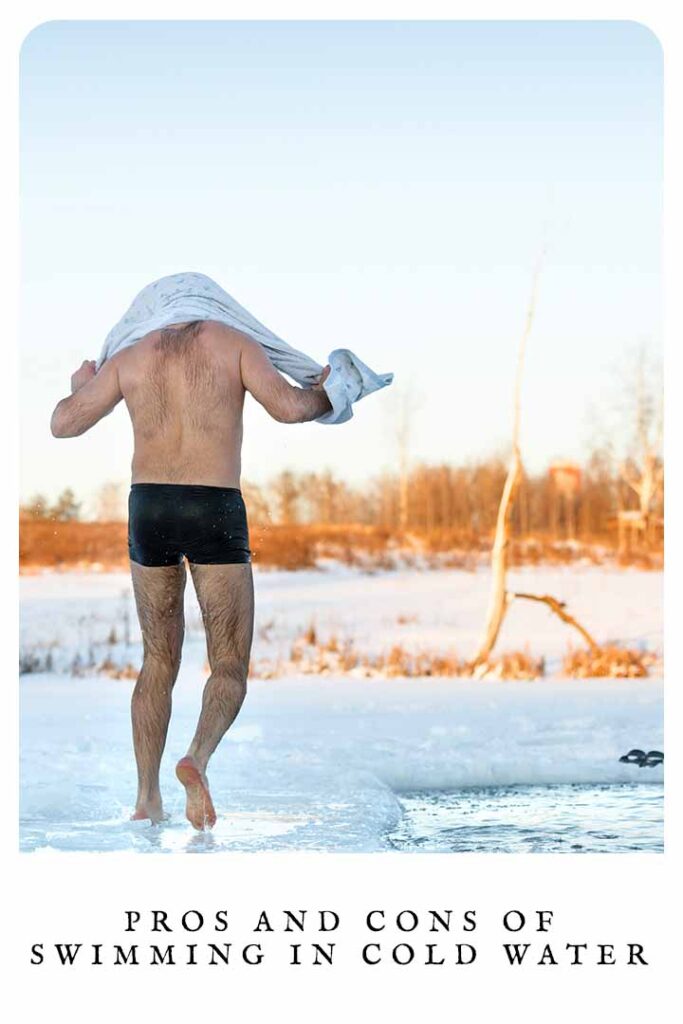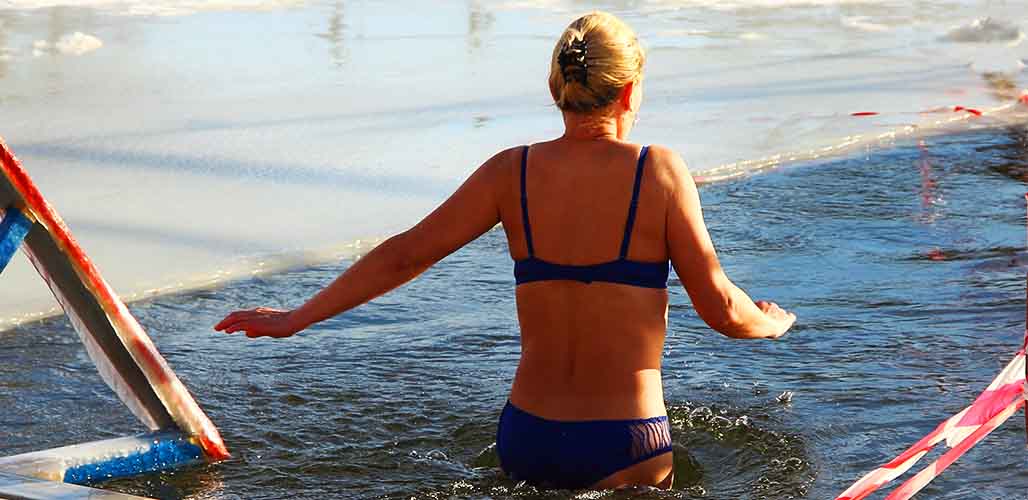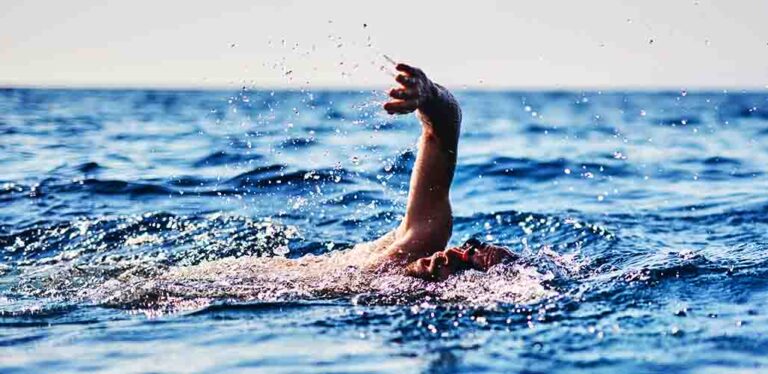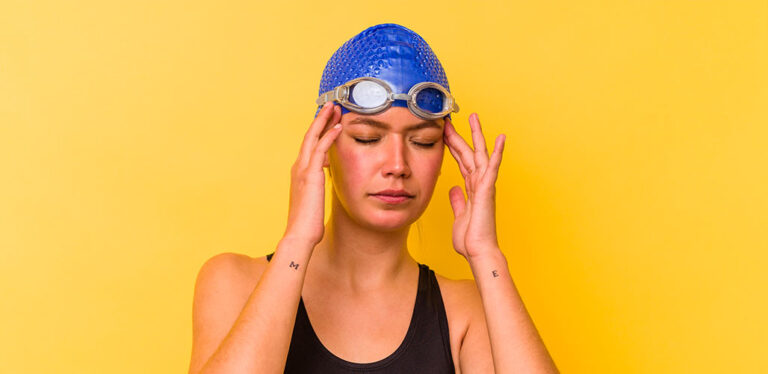Pros And Cons Of Swimming In Cold Water
The pros and cons of swimming in cold water are interesting. On the one hand, there are physical and mental health benefits. On the other hand, there are definitely some risks. And while these risks can be minimized with safety precautions, they need to be taken seriously. You’ll need to decide whether or not the cons outweigh the pros (or vice versa) for you. For some, the benefits outweigh the risks, but this is a really personal decision.
Contents
- The benefits of cold water swimming
- Does cold water swimming make you feel happier?
- Improved immunity from cold water swimming
- The risks of swimming in cold water
- How to stay safe
What Is Cold Water Swimming
Cold water swimming is the sport of swimming outdoors in icy lakes and rivers. There is a tradition of cold water swimming in Finland but the sport is increasing in popularity, and spreading around the world.
As more people become involved it’s important to make sure that participants are aware of the risks as well as the benefits.
The International Winter Swimming Association is an organization founded in 2006, that is committed to promoting safe open water swimming events worldwide. It’s well worth a visit to their website if you are going to get involved.
The Pros & Cons of Cold Water Swimming
Most of us don’t willingly immerse ourselves in freezing cold water without good reason. The widely reported benefits of cold water swimming are what motivates us to take that first plunge.
But how many of those benefits are genuine and how much are just myth? Fortunately, there have been quite a few studies on the effects of immersion in cold water in particular, and on cold water swimming generally.
You can find links to those sources at the foot of this article. We’ll take a look at each of those benefits in turn and see how the evidence holds up
The Benefits of Cold Water Swimming
Cold water swimmers report wide ranging benefits from improvements in mood to a better resistance to infection.
Easier weight loss, greater life expectancy, better heart health and faster recovery from injury are also claimed by some proponents of winter swimming.
Although more work is needed on some aspects of the benefits of cold water swimming there are studies to support some of these claims. Let’s take a look at those now.
Mood improvements
In 2018 the British Medical Journal reported on a young woman with a major depressive disorder who had been on medication for several years but wanted to be drug free after the birth of her baby.
The young woman embarked on a program of weekly cold water swimming with immediate improvements in her symptoms after each swim. And was able to gradually come off her meds altogether.
Many cold water swimmers report elevated mood and even euphoria after a cold water swim. How much of that is due to the physiological effects of immersion and how much is due to overcoming the psychological barriers to taking that challenge is unclear.
Stripping down to your swim suit and plunging into very cold water in the middle of winter is after all, quite an achievement!
Pain relief & well being
An earlier study from 2004 looked at a group of swimmers for over four months, and concluded that winter swimming induced a feeling of well being. In addition, the swimmers all felt more energetic and active.
Interestingly participants in the study with a range of conditions including rheumatism, asthma, and fibromyalgia also reported that cold water swimming relieved their pain.
Resistance to infection
Cold water immersion is widely believed to improve our immunity, or resistance to infection. When a human body is immersed in very cold water on a regular basis, it undergoes changes that enable its owner to adapt!
It’s these physiological changes that might be capable of underpinning improvements in resistance to infection. They include changes in hormones, metabolism and heart and circulatory changes. And we can measure these changes in blood samples taken from swimmers.
But are these changes proven to prevent infection of improve immunity in a worthwhile way? The answer is ‘maybe’. A study from back in 1996 looked at the impact of regular three times weekly immersion in cold water on young, athletic men, over a period of six weeks. And found some ‘slight’ improvement in indicators of improved immunity. However, changes in these indicators or marker doesn’t automatically mean that the swimmer will be able to fight off the next infection more effectively than a non-swimmer.
Some studies looked at upper respiratory infections (URI) such as colds and flu. One study looked at 85 ice swimmers and 40% reported that they suffered fewer URIs after starting ice swimming.
This and two similar studies relied on self reported illnesses. And more work is needed in this field before we can state categorically, that cold water swimming improves immunity.
Sadly few studies looked at actual rates of infection and it’s quite difficult to find participants for such studies because cold water swimming is such a minority interest. It’s also difficult to compare cold water swimmers with equivalent non swimmers as the group as a whole tend to be very fit.
Recovery from injury
Perhaps one of the most widely reported effects of cold water immersion is its impact on sports injuries.
You’ve probably seen olympic athletes being plunged into iced water after running extreme distances, and cold water immersion has for some time been a major tool in prevent athletic injury and speeding recovery.
Cold water immersion has been shown to reduce muscle stiffness and post exercise damage, but in most cases this immersion is more likely to take place indoors in an iced bath, than in a wintery outdoor lake!

The Risks Of Cold Water Swimming
Cold water swimming is certainly an unusual way to improve your fitness and have fun, and those involved are often passionate about the benefits.
However, there are some dangers to cold water swimming that we must mention. Some people find it harder to swim in cold water for example, but for the most part, the disadvantages of cold water swimming lie in the risk of death.
Scientist have categorized three stages of cold water immersion. Each stage carries its own risks, and none of those risks should be taken lightly. The first stage is Cold Shock
Cold Shock
Sudden immersion in very cold water causes initial contraction of the lungs followed by uncontrollable hyperventilation. This reaction is accompanied by rapid rise in heart rate and blood pressure which stabilize as the body adapts over the next minute or so.
The problem is that the shock and loss of breathing control during that first few seconds can be enough to get water into the lungs and initiate drowning. So that initial two minute is a very high risk time for anyone falling or even deliberately plunging themselves into ice cold water.
Experienced swimmers can adapt to the initial shock of immersion but this takes time and skill. Cold shock is responsible for the majority of deaths from cold water immersion
Short Term Exposure
Short term exposure is the second phase. Muscles work best when they are warm, and as the body cools, it become harder for arms and leg muscles to work effectively.
The chemical and electrical changes that active muscles depend on start to slow down as the temperature of the body decreases. And even strong swimmers may become incapacitated by short term exposure.
Hypothermia
Finally prolonged immersion in cold water (thirty minutes or more) can lead to hypothermia. This can lead to confusion, disorientation, and even loss of consciousness.
These risks are very real. The decision to swim in cold water should not be taken lightly, and proper precautions should always be taken to minimize the potential dangers.
It’s essential to always have supervision when swimming in cold water and to slowly acclimate yourself to the temperature rather thanjumping in without preparation.
Safety Tips For Your Cold Swim
- Never swim in cold water alone. And when you first begin, make sure you go with an expert cold water swimmer.
- Never jump into deep cold water, get in slowly and allow your breathing to stablilize before you start to swim.
- Keep your swims very short to begin with. Acclimatize gradually.
- Where appropriate, wear a life jacket or other flotation device.
- Listen to your expert’s advice
- Get out of the water as soon as possible if you feel unwell or exhausted.
Pros and Cons of Swimming in Cold Water
Our understanding of the benefits of cold water swimming are still growing. A review of the evidence on the pros and cons of cold water immersion published in 2017 concluded that
In most instances there seems to be a credible rationale for the benefits or otherwise of CWI, in some instances the supporting data remain at the level of anecdotal speculation
Source: Cold Water Immersion- Kill or Cure?
Cold water swimming is stressful and physically challenging to the body. There’s no doubt that regular cold water swimmers adapt to this challenge and many of them are convinced of the benefits. There’s also no doubt that there is a feel good factor to regular cold water swimming that has a great deal of appeal.
Scientists do not all agree on the type and extent of these benefits but feeling good is a very nice place to be. Whether or not you personally would benefit from cold water swimming is something you probably won’t know until you try it.
Remember that immersion in cold water can be very dangerous, and for some people even fatal. So it’s very important you get a medical check up before you attempt it, and make sure you are mentored and accompanied by an experienced cold water swimmer.
Good luck and happy swimming!
References
- Cold water swimming—benefits and risks: A narrative review -B Knechtle et al. International Journal of Environmental Research and Public Health
- Cold Water Swimming Beneficially Modulates Insulin Sensitivity in Middle-Aged Individuals Magdalena Gibas-Dorna et al. Human Kinetics Journal 2015
- Open water swimming as a treatment for major depressive disorder. Christoffer van Tulleken et al. British Medical Journal 2018
- Winter swimming improves general well-being. Huttenen et al. 2004 International Journal of Circumpolar Health
- Immune system of cold-exposed and cold-adapted humans. Jansky et al. European Journal of Applied Physiology 1996
- Cold water immersion: kill or cure? Tipton et al. 2017 Journal of Experimental Physiology
- Effects of cold water immersion on the symptoms of exercise-induced muscle damage. Eston & Peters 2010. Journal of Sports Science



